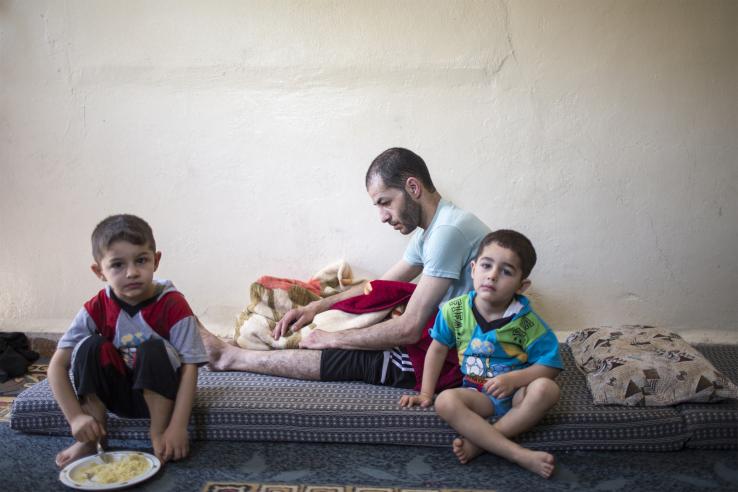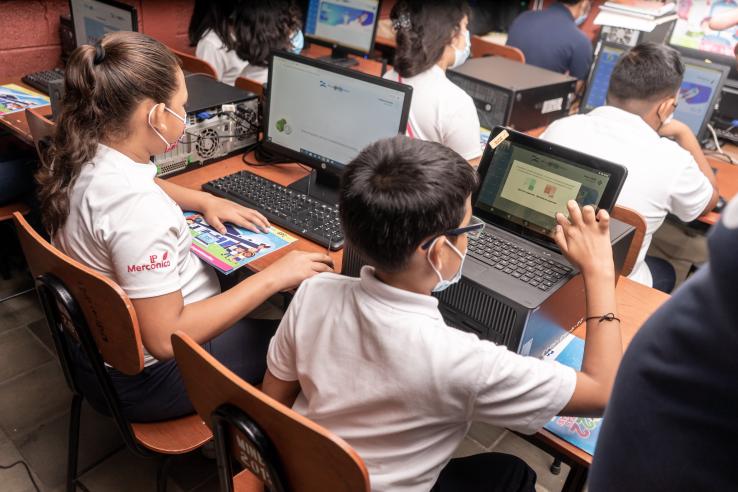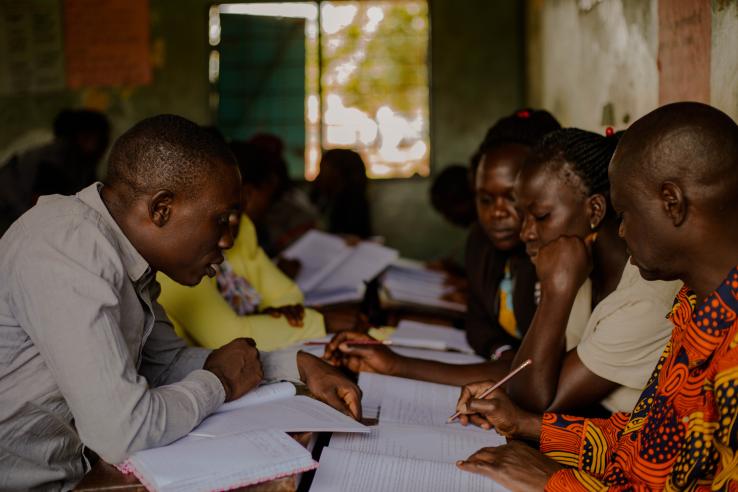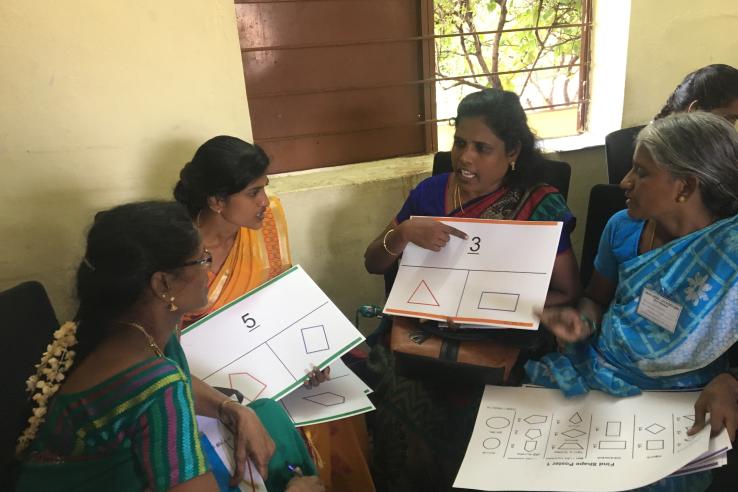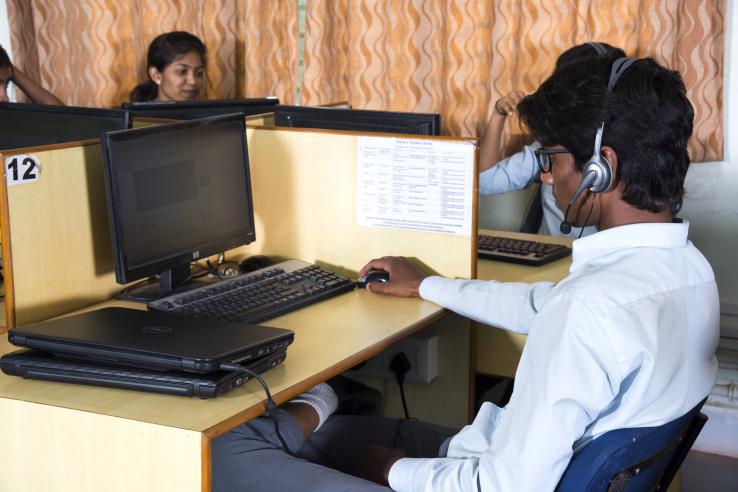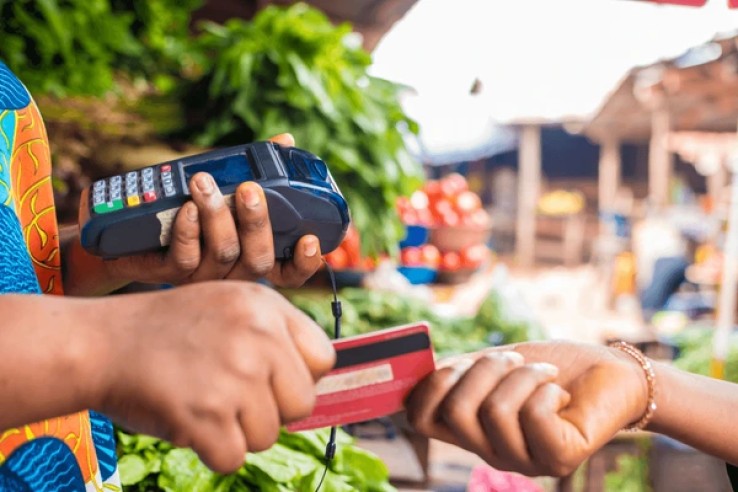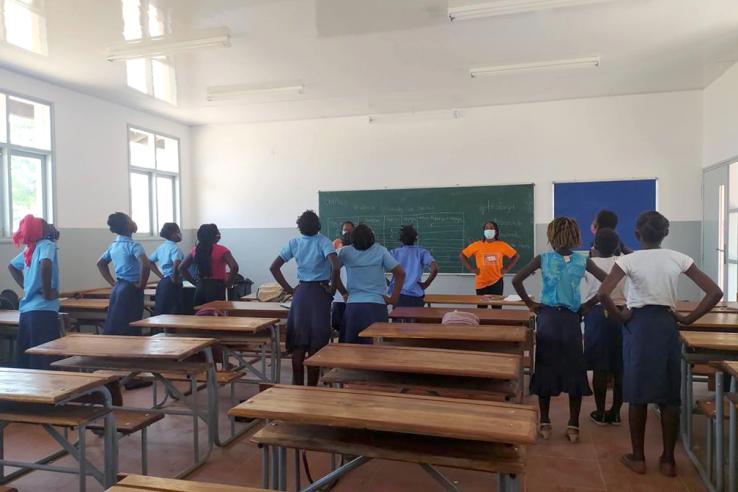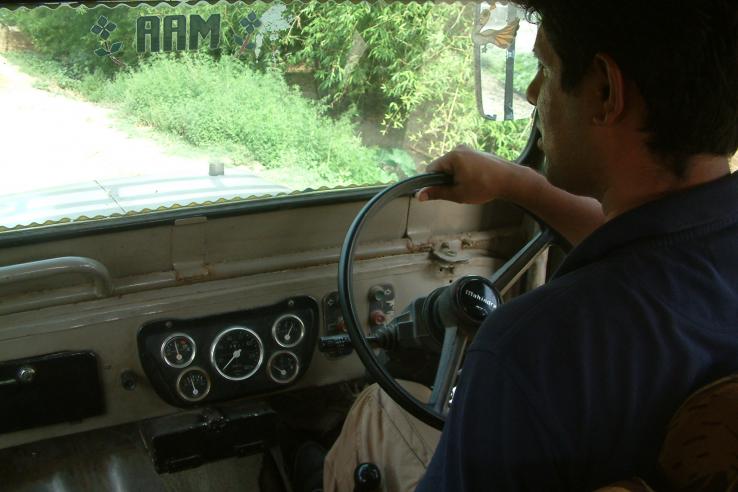Displaying 4441 - 4455 of 8489
Evaluation
Researchers are conducting a randomized evaluation of a subsidized housing assistance program for refugees in Jordan to assess its impact on their economic outcomes, psychological well-being, long-term migration decisions, and social integration into their host community.
Evaluation
In Colombia, researchers evaluated the impacts of a national computer distribution program (Computers for Education) on student test scores, time spent on learning, and attitudes towards education. The program had no effect on math or Spanish test scores, hours of study, or perceptions of school. Researchers found that, in practice, teachers only used the computers to teach computer usage skills, rather than the range of subjects for which they were intended.
Evaluation
Researchers shared information on students’ relative academic standing among university students in Spain to evaluate the impact of this information on student performance and satisfaction. Providing students with information on their relative standing led to a short-term decrease in academic performance and an increase in satisfaction.
Evaluation
Researchers, in partnership with Kimanya Ngeyo Foundation for Science and Education in Uganda, evaluated the impact of a program that trained teachers to learn like scientists: posing questions, framing hypotheses, and using real-world experience wherever possible. Researchers found positive impacts on classroom dynamics, teacher pedagogy, student learning, and creativity, with impacts on student learning sustained for four years.
Evaluation
Researchers studied a policy reform in Boston, Massachusetts, that allowed effective charter schools to replicate their school models at new locations. Results showed that charter schools reproduced their effectiveness at new campuses by following similar sets of standardized protocols, demonstrating the feasibility of charter school replication.
Research Paper
File: Research paper
Resource
Basic page
J-PAL is invested in creating more opportunities for African researchers to develop and drive the research agenda on the African continent through the use of randomized evaluations.
Blog
Researchers in the J-PAL network have been using randomized evaluations to learn how to help people get jobs and how to help businesses grow for over two decades, drawing out insights to inform policies and programs from Brazil to sub-Saharan Africa and beyond . Researchers have also started testing...
Evaluation
In partnership with Melchia Investments, a private Ghanaian technology company, researchers are conducting a pilot randomized evaluation to identify the effectiveness of a new tax collection technology in increasing property tax revenues for local governments.
Evaluation
In many countries around the world, there is growing concern that certain groups of people may face job market discrimination based on physical appearance. To test this theory, researchers randomly submitted resumes with photos of people with varying levels of attractiveness to measure the effect on prospective employer interest. They found that, on average, resumes with attractive photos were 36 percent more likely to receive a callback than resumes with unattractive photos.
Evaluation
In Kazakhstan, researchers tested whether offering youth community service grants and training impacted their level of community engagement, pro-social behavior, life skills, and labor market outcomes. Engaging youth in civic service and/or training had little to no effect on these outcomes one-year post-program, with some evidence of negative training effects on labor market outcomes.
Evaluation
In Mozambique, researchers are evaluating the GBV and schooling impacts of implementing a GBV curriculum targeted at students.
Evaluation
To investigate which strategies are most effective at preventing drunk driving and reducing traffic accidents, researchers partnered with the Rajasthan Police in India to evaluate an anti-drunk driving program using sobriety testing checkpoints. Overall, the anti-drunk driving program was effective in reducing traffic deaths and accidents, with these reductions driven entirely by police stations that implemented surprise checkpoints.
